
Rice Balls and More: A Look at Japanese Convenience Store Food
Guideto Japan
- English
- 日本語
- 简体字
- 繁體字
- Français
- Español
- العربية
- Русский
Traditional Favorites
Japanese convenience store chains stock a wide selection of fresh foods, including bentō lunches, rice balls wrapped in seaweed, bread, and salads. They also have various types of instant ramen to choose from along with snacks like dried fruit, candy, and potato chips.
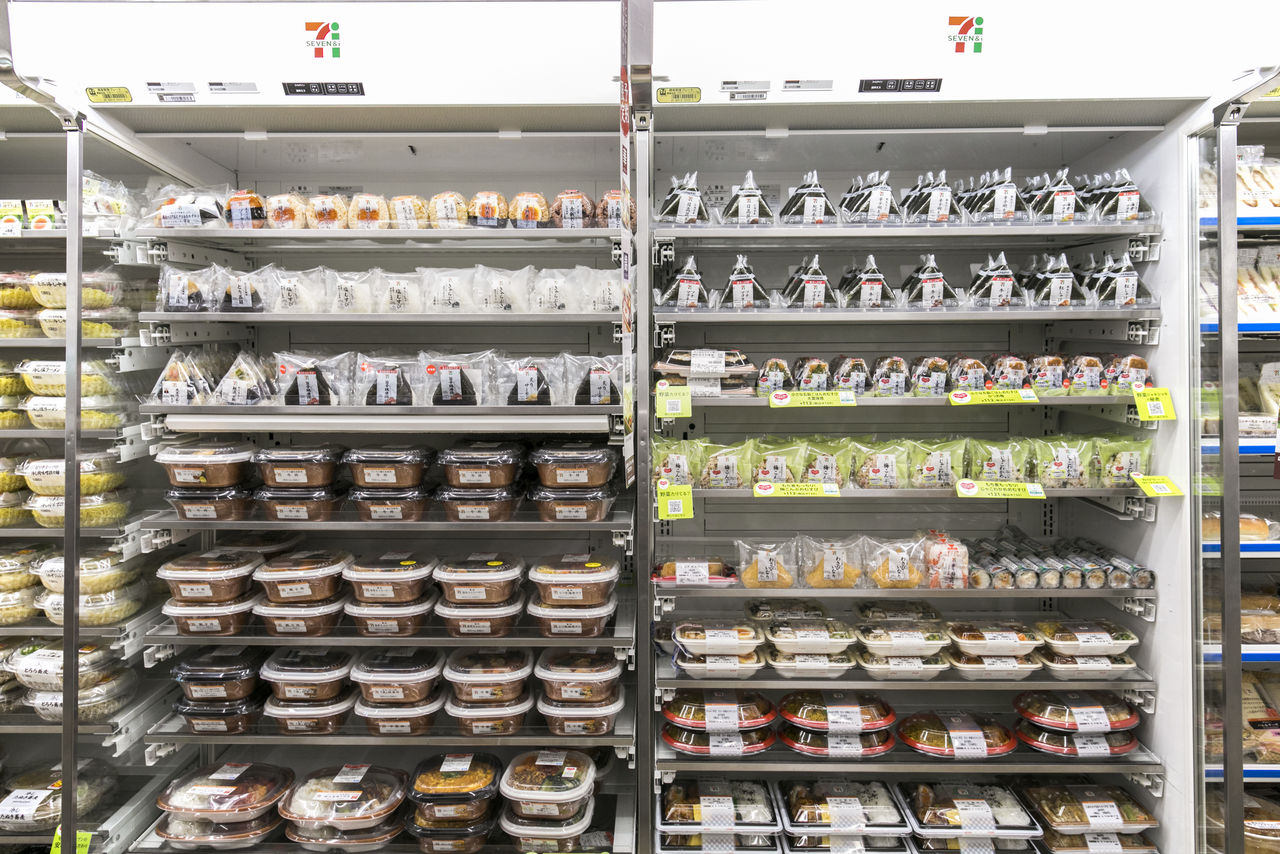 Convenience stores offer different kinds of bentō lunches and rice balls. The best-by dates are all rigorously monitored to ensure safety.
Convenience stores offer different kinds of bentō lunches and rice balls. The best-by dates are all rigorously monitored to ensure safety.
Among the different fare available is the extensive variety of traditional Japanese food. Many well-known Japanese dishes are included in bentō boxes, such as fried fish and nikujaga (boiled meat and potatoes), and rice balls feature classic fillings like umeboshi (pickled plum), nattō (fermented soy beans), and fish roe. Noodle dishes like soba and udon can also be found.
Recently, sushi has emerged as a popular option at some shops. If there is a type of Japanese cuisine you have yet to try, check out what the convenience stores have on their shelves.
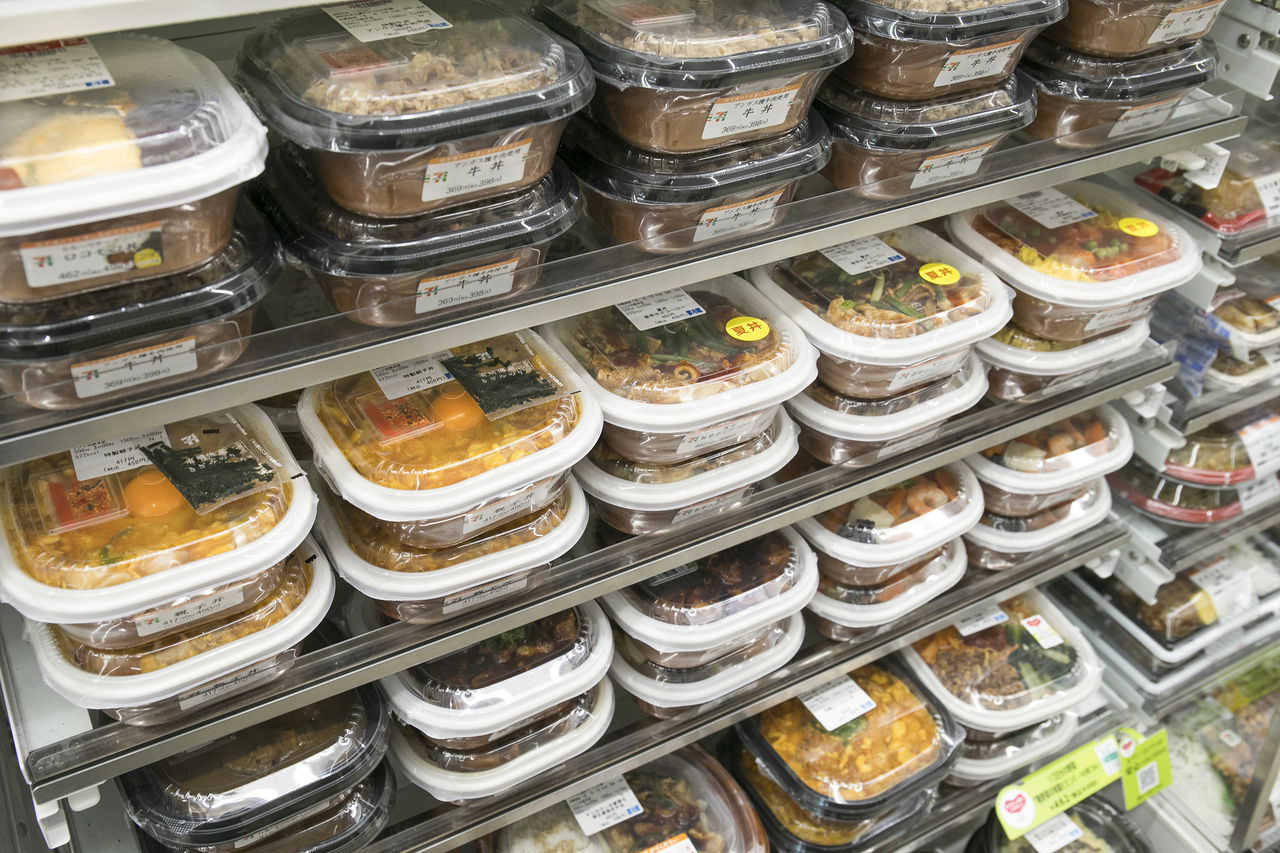 Beef bowls, oyakodon, and other hearty options are standard at convenience stores.
Beef bowls, oyakodon, and other hearty options are standard at convenience stores.
As customer needs have diversified, convenience stores have started developing high-quality products under their own in-house brands. Seven-Eleven’s Seven Premium, FamilyMart’s Mother’s Cafeteria, and Lawson Select offer choice bentō, side dishes, and sweets designed to complement a typical household dinner.
For customers who prefer a piping hot meal, stores have microwave ovens on hand for heating bentō or side dishes and electric kettles dispensing boiling water for instant ramen. There are also free disposable chopsticks, plastic spoons, and wet towels. Increasingly, stores are setting aside space with tables and chairs for customers to enjoy their purchases on the premises.
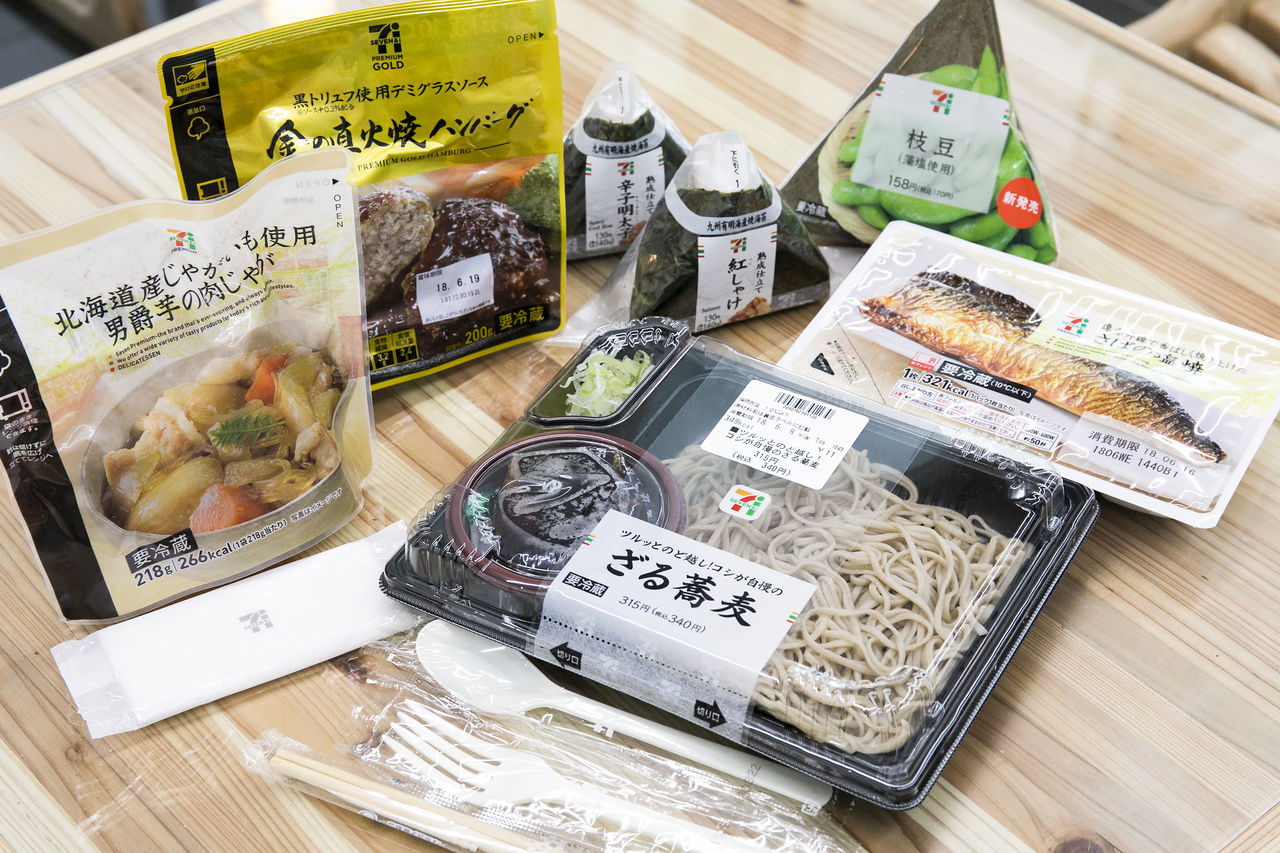 Seven-Eleven’s Seven Premium brand uses specially selected ingredients, including meats and domestically grown vegetables.
Seven-Eleven’s Seven Premium brand uses specially selected ingredients, including meats and domestically grown vegetables.
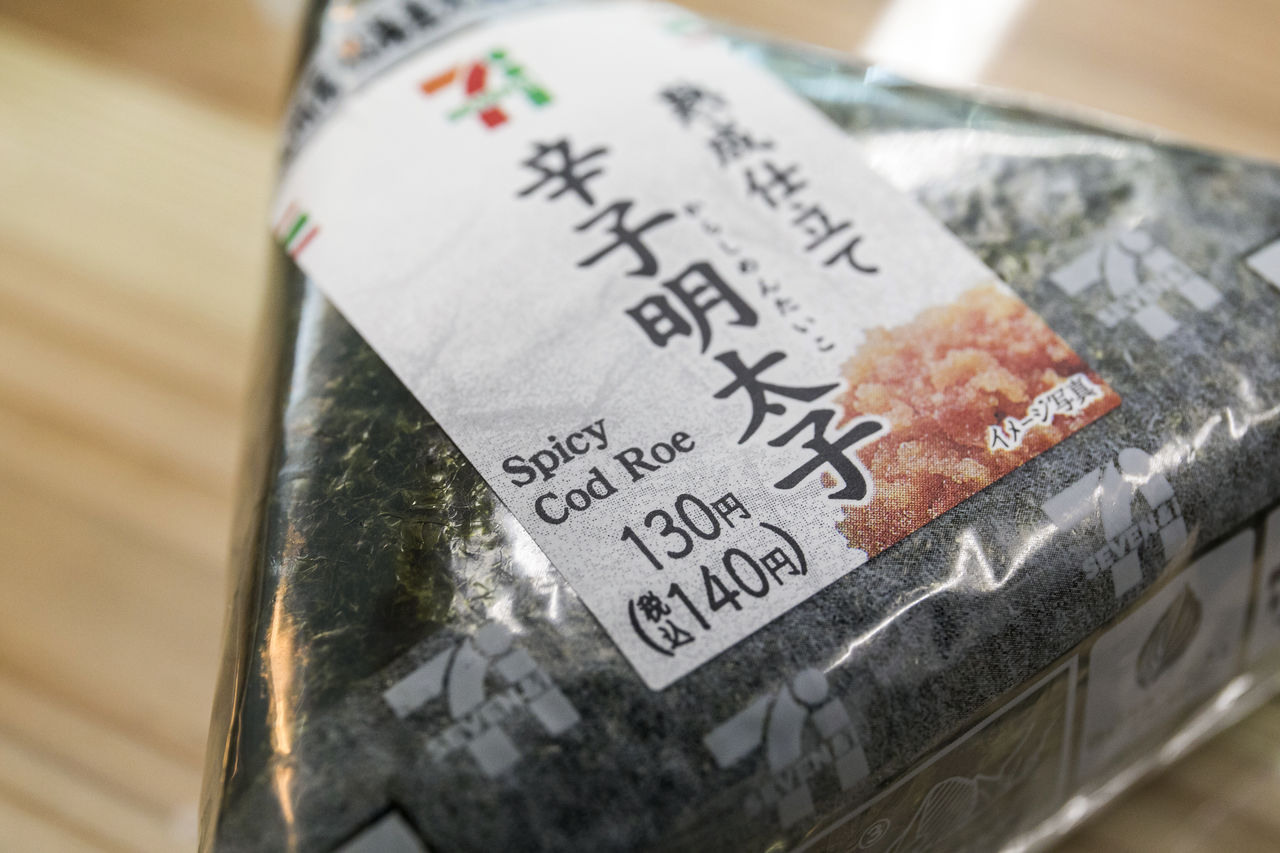 English labeling is appearing with greater frequency on packaging.
English labeling is appearing with greater frequency on packaging.
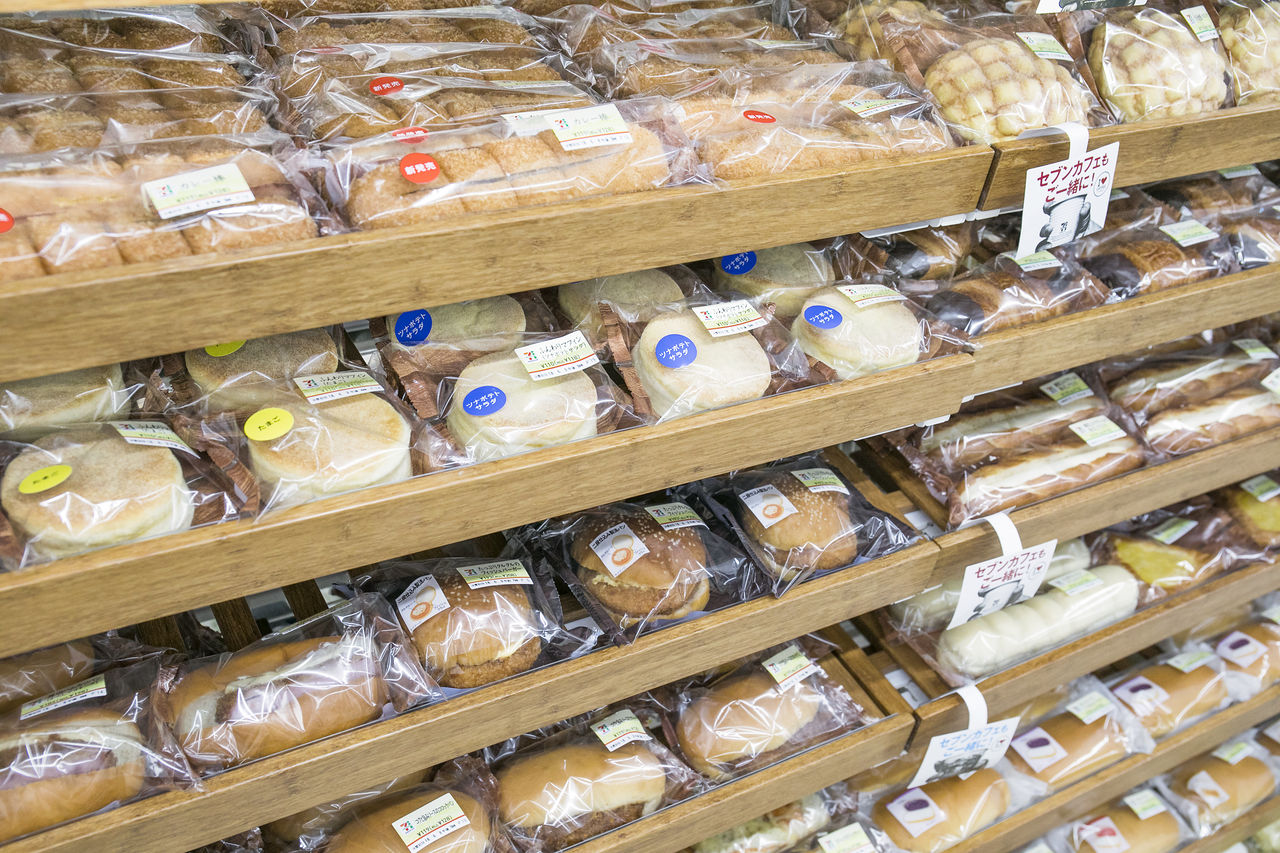 Stores offer a selection of in-house branded bread and snacks.
Stores offer a selection of in-house branded bread and snacks.
Warming Up at the Register
Hot snacks are another mainstay of Japanese convenience stores. Food warmers located on the front counter offer a variety of delights such as croquettes, yakitori (grilled chicken skewers), fried chicken, and Chinese-inspired steamed buns filled with fillings like meat and sweetened bean paste.
FamilyMart has enjoyed particular success by expanding its warmer options. After introducing yakitori at stores in 2017, it sold 100 million pieces in the first six months alone.
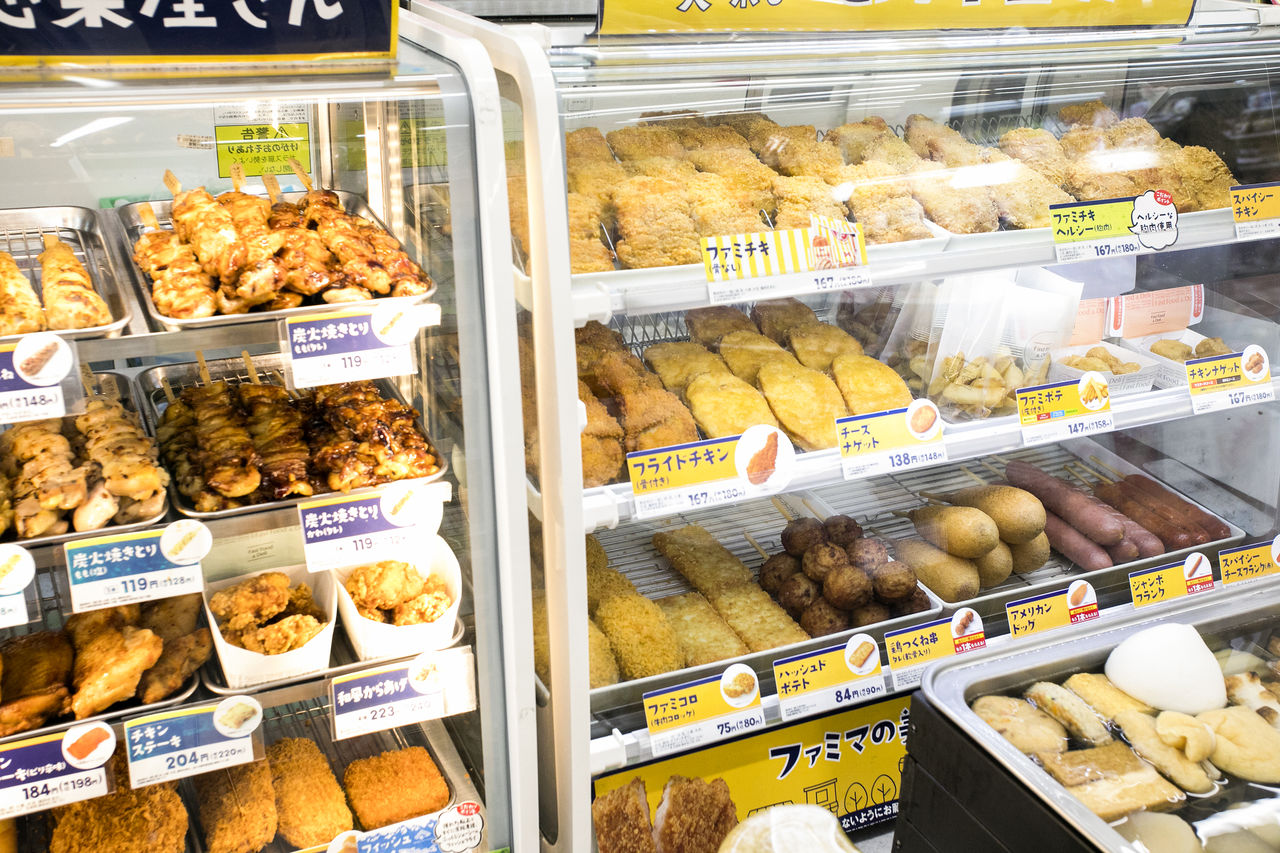 Customers can request an item that is not available in the warmer.
Customers can request an item that is not available in the warmer.
 Popular hot snacks: from left, FamiChiki brand fried chicken, a spring roll, and sticks of yakitori.
Popular hot snacks: from left, FamiChiki brand fried chicken, a spring roll, and sticks of yakitori.
Another convenience store staple is oden, a traditional Japanese nabe, or hot pot, dish that first gained popularity as a Japanese-style fast food in the Edo period (1603–1868). Stores normally serve oden from square metal servers near the main counter. The ingredients of the dish are a unique mix of flavor and textures, including steamed fish cakes, meat, boiled daikon radish slices, hard-boiled eggs, and chewy konnyaku steeped in a savory fish broth. Japanese mustard and miso stock are added to taste.
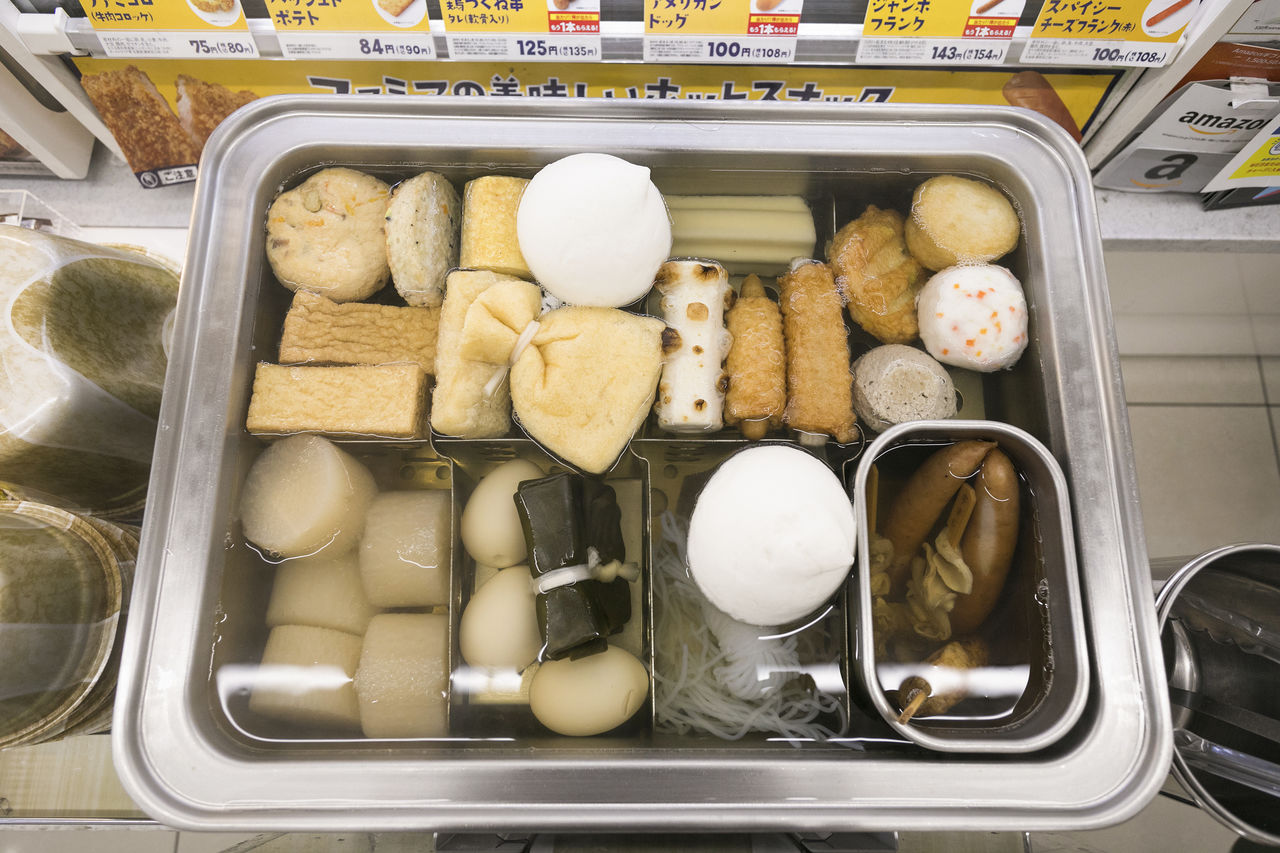 Oden ingredients vary from region to region.
Oden ingredients vary from region to region.
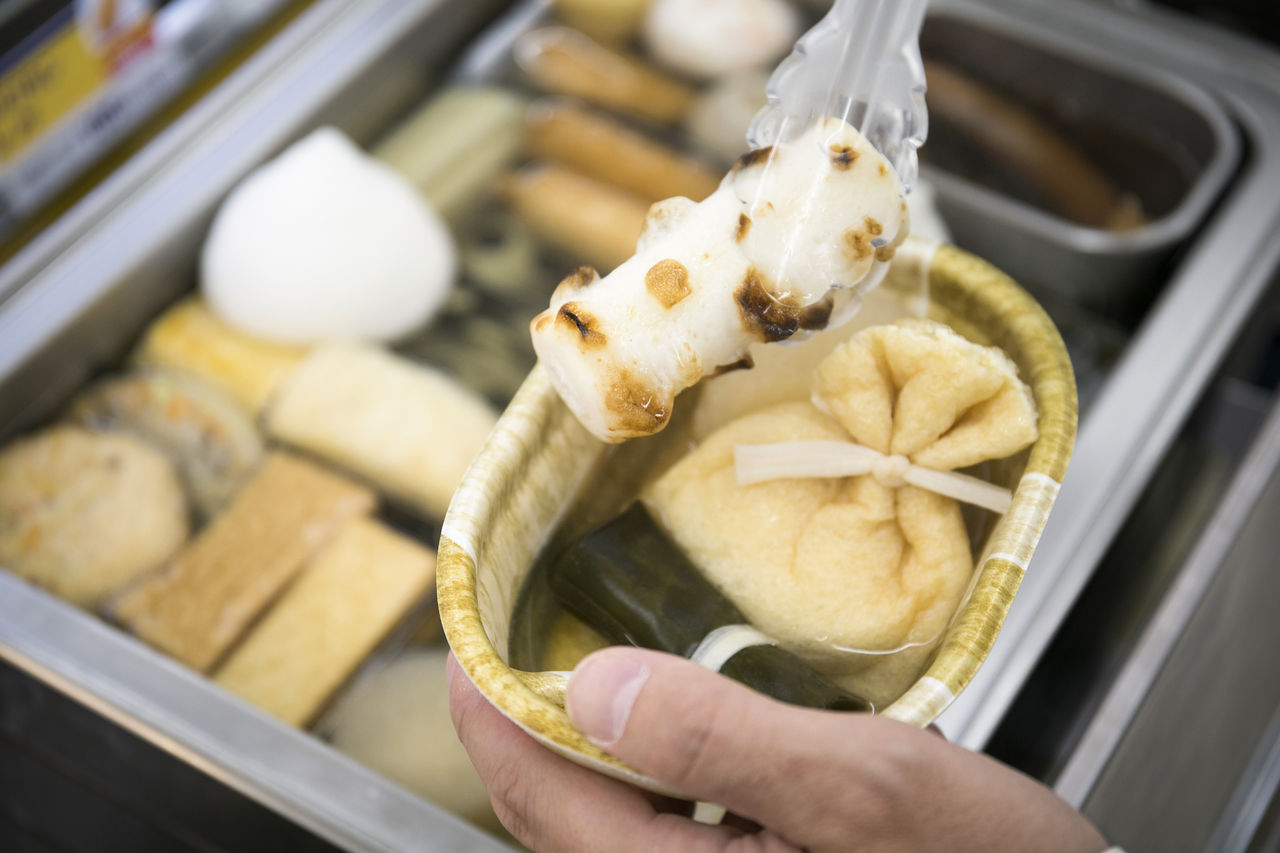 Customers normally dish up their own oden pieces, but staff can be called on to help. Some stores do not offer oden during the warmer months.
Customers normally dish up their own oden pieces, but staff can be called on to help. Some stores do not offer oden during the warmer months.
Oden is particularly popular when the weather turns cool and is especially recommended to chase away the chills of wintertime.
(Originally published in Japanese. Text by Fujitani Ryōsuke; photos by Jōraku Hiroyuki. Banner Photo: Hot snacks and oden on the main counter at a FamilyMart store.)